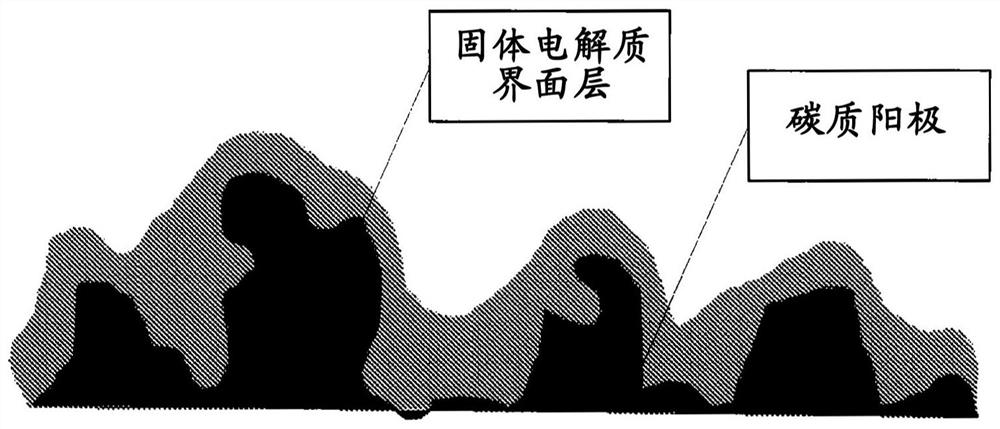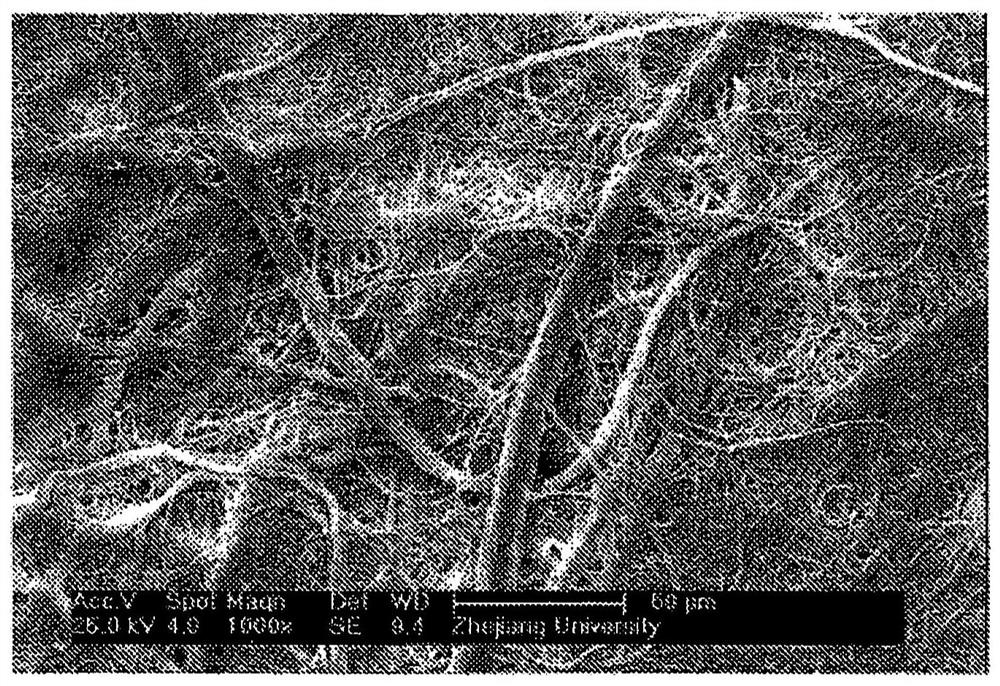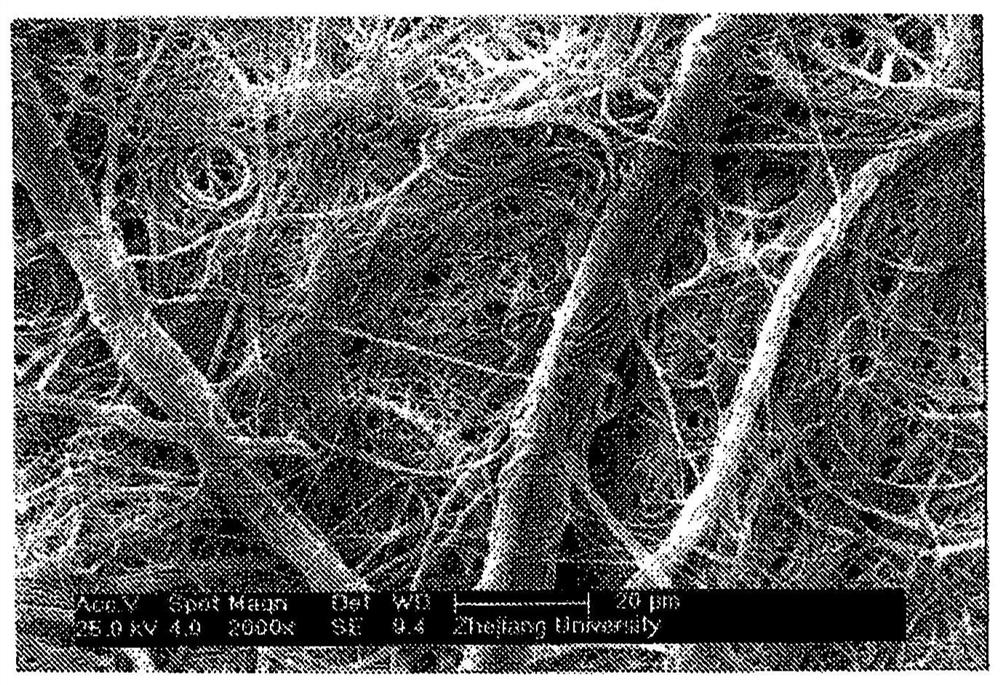Lithium ion battery and manufacturing method
A lithium-ion battery and battery technology, applied in secondary battery manufacturing, electrolyte battery manufacturing, secondary batteries, etc., to achieve the effect of improving discharge rate and other properties, and small pore size
- Summary
- Abstract
- Description
- Claims
- Application Information
AI Technical Summary
Problems solved by technology
Method used
Image
Examples
Embodiment
[0081] Dreamweaver Silver diaphragms were fabricated according to the method described in US Patent No. 8,936,878 (incorporated herein by reference). The example used in these trials was Dreamweaver Silver 25, which included: EFTec A-010-04 nanofibrillated polyacrylonitrile fibers, EFTec L-010-04 nanofibrillated cellulose fibers, and polyethylene terephthalate Alcohol ester fiber, which has a length of 5 mm and a linear density of 0.3 denier per filament. The properties of this separator are shown in Table 2 below.
[0082] Table 2
[0083] Basement Membrane Properties Units of measurement Dreamweaver Silver TM 25
Thickness (12.6psi) μm 27 Thickness (25psi) μm 26 Gurley (JIS) Second 80 porosity % 56% Aperture μm 1.1 TD Shrinkage @160C % 0 MD Shrinkage @160C % 2 TD length Kgf / cm 2
175 MD length Kgf / cm 2
330 Young's modulus Kgf / cm 2
23000 melt integrity C 200 ...
experiment example
[0090] Experimental example: battery manufacturer A
[0091] Production LiFePO4 electrodes were obtained from two manufacturers and tested in single-layer pouch cells sandwiched between two sheets of Plexiglas for uniform stress. Electrical properties other than self-discharge are very consistent across batteries and are otherwise reported more completely.
[0092] A single-layer contact cell (pouch cell) is made in a dimension of 50mm x 50mm. Electrodes (matched anode and cathode pairs) were commercially available from Chinese battery manufacturers. Fill the cell with a Li-ion battery electrolyte comprising 1 mole of LiPF in a 4:3:3 volumetric mixture of ethylene carbonate, dimethyl carbonate, and diethyl carbonate 6 . The battery was sealed into shape, and the procedure in Table 3 and Test parameters for testing. Use the following procedure to complete the test on a Neware battery tester.
[0093] The battery fabrication method included separator drying, cell assembl...
PUM
| Property | Measurement | Unit |
|---|---|---|
| pore size | aaaaa | aaaaa |
| length | aaaaa | aaaaa |
| length | aaaaa | aaaaa |
Abstract
Description
Claims
Application Information
 Login to View More
Login to View More - R&D
- Intellectual Property
- Life Sciences
- Materials
- Tech Scout
- Unparalleled Data Quality
- Higher Quality Content
- 60% Fewer Hallucinations
Browse by: Latest US Patents, China's latest patents, Technical Efficacy Thesaurus, Application Domain, Technology Topic, Popular Technical Reports.
© 2025 PatSnap. All rights reserved.Legal|Privacy policy|Modern Slavery Act Transparency Statement|Sitemap|About US| Contact US: help@patsnap.com



